[The Jewish people is] a fractious, fissile people, always given to divisions and disunity. How do we deal with that? The answer is, that Judaism contains the most powerful tool of conflict resolution ever known. The only trouble is, we don’t use it. What is it? We never believed that Jews, or anyone else, all have to think the same thing. We know we’re argumentative.
We know that the 11th chapter of Bereishit describes a world in which, vayehi kol ha’artz safar achat u’devarim achadim, the builders of the Tower of Babel spoke one language and all had the same idea. And God came and confused their language. We have never sought to impose unity on the world. We have never even sought to impose uniformity on Jews.
How then do we deal with difference? It’s very interesting. Judaism is the only religion, the only culture in the world, all of whose canonical texts are anthologies of arguments. In the Bible, Abraham argues with God, Moses argues with God, so does Jeremiah, so does Jonah, so does Job. In the Mishnah, Rabbi X says this, Rabbi Y says that, and the Mishnah doesn’t tell us who is right and who’s wrong. It preserves both views. Even a rejected view. The view of the school of Shammai is still reported. We argue.
How then do we stay as one? By the sheer force of the argument itself. We stay, we converse, we disagree, but we never split apart. The Sages coined the most beautiful idea. They called it machlochet lesheim shamayim – Argument for the Sake of Heaven. And the Talmud dramatises it. It says Rabbi X says this, Rabbi Y says that. The Rabbis, inquired, “who is right?” And Heaven replied, “eilu v’eilu divrei elokim chayim” – they are both the words of the living God. God enjoys an argument.
So the Talmud says this “afilo av u’beno, afilo rav v’talmido” when a father and son or a Rabbi and a disciple sit together, they become enemies to one another, that they argue. “Ve’einu zazim misham ad sh’ne’a’sim ohavim zeh b’zeh” – but they do not part from there until they become lovers of one another. Why? Because, et ahav basufa – if you stay within the argument, there is love at the end.
In other words, Judaism believes that the argument itself is the total conversation of the Jewish people in dialogue with God. And so long as we can keep arguing with one another, never leaving the table, but engaged in the collaborative pursuit of truth, that is what holds the Jewish people together. Unity without uniformity. The willingness to keep talking, even with those with whom we disagree.
SHARE
More from JInsider

Rabbi Sacks on the Jewish Narrative
JInsider (March 2010)
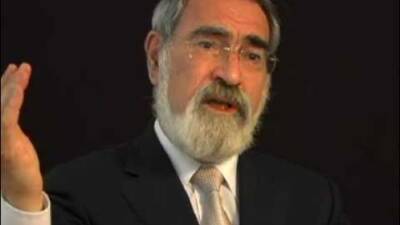
Rabbi Sacks on Future Tense Take Aways: Part 1
JInsider (March 2010)
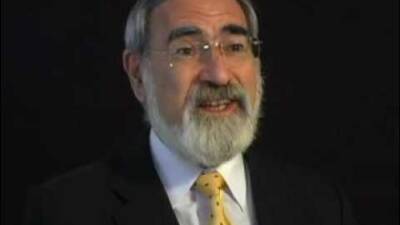
Rabbi Sacks on Future Tense Take Aways: 2
JInsider (March 2010)
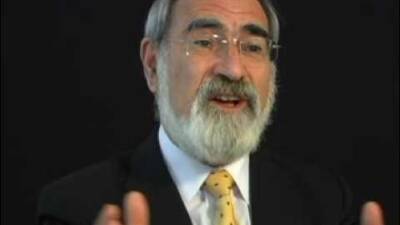
Rabbi Sacks on the Universal Jewish Story
JInsider (March 2010)
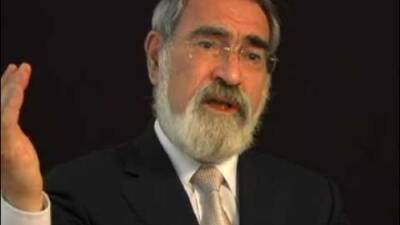
Rabbi Sacks on Eco-Judaism Roots
JInsider (March 2010)
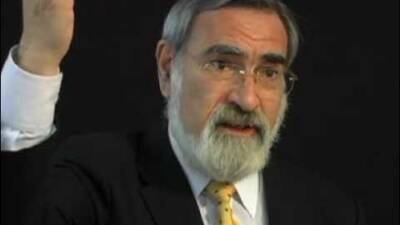
Rabbi Sacks on Peoplehood
JInsider (March 2010)

Rabbi Sacks on an Engaged Judaism
JInsider (March 2010)
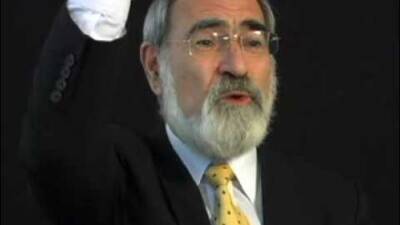
Rabbi Sacks on Charity Priorities
JInsider (March 2010)
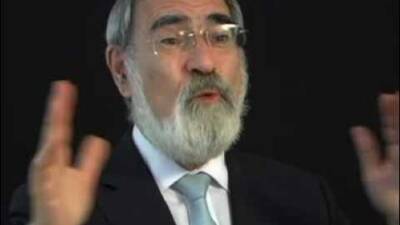
Rabbi Sacks on a Responsible Life
JInsider (March 2010)
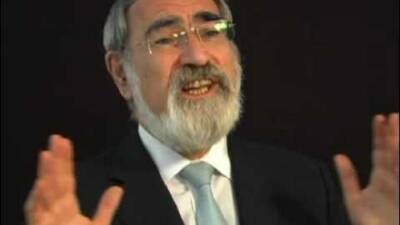
Rabbi Sacks on Reconciliation
JInsider (March 2010)
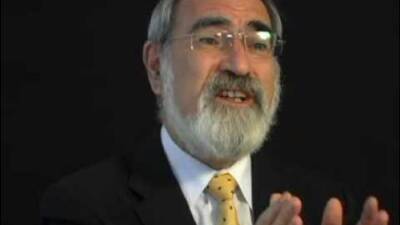
Rabbi Sacks on Particularism vs Universalism
JInsider (March 2010)

Rabbi Sacks on a Culture of Hope
JInsider (March 2010)
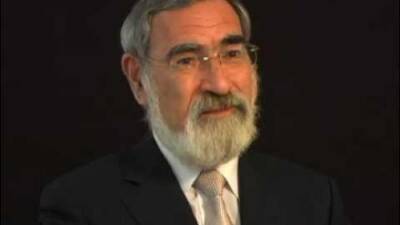
Rabbi Sacks on his Personal Hatikvah
JInsider (March 2010)
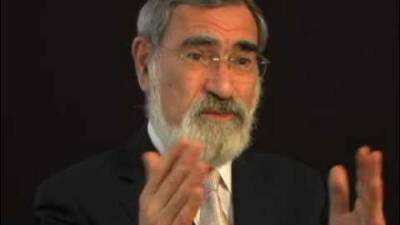
Rabbi Sacks on Israel and Jewish Society
JInsider (March 2010)
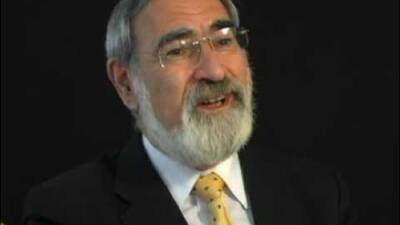
Rabbi Sacks on Torah in Today's World
JInsider (March 2010)
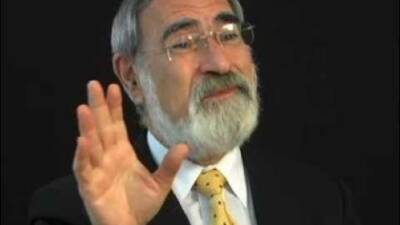
Rabbi Sacks on Prayer
JInsider (March 2010)
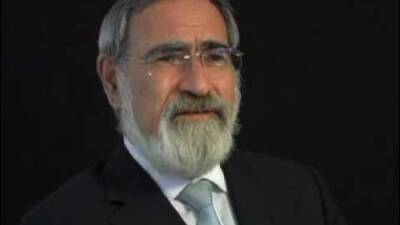
Rabbi Sacks on Indifference
JInsider (March 2010)
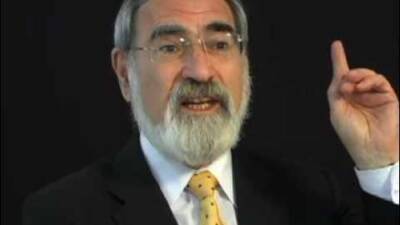
Rabbi Sacks on the Jewish Role in the World
JInsider (March 2010)
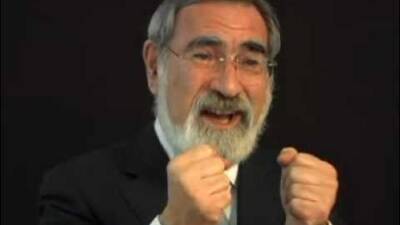
Rabbi Sacks on Torah and the Real World
JInsider (March 2010)
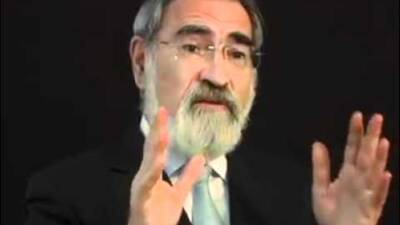
Rabbi Sacks on Free Market and Judaism
JInsider (March 2010)
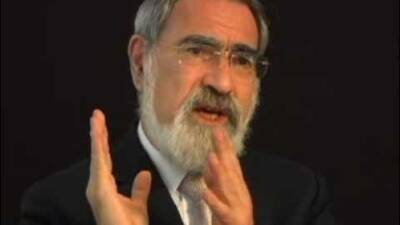
Rabbi Sacks on Antisemitism
JInsider (March 2010)
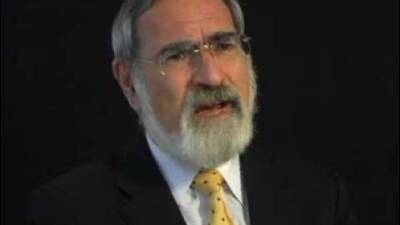
Rabbi Sacks on Future Tense
JInsider (March 2010)
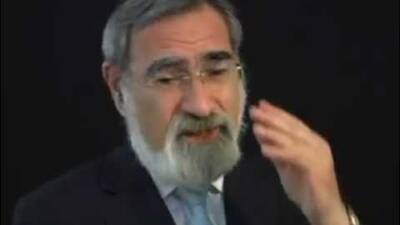
Rabbi Sacks on Love as Deed
JInsider (March 2010)
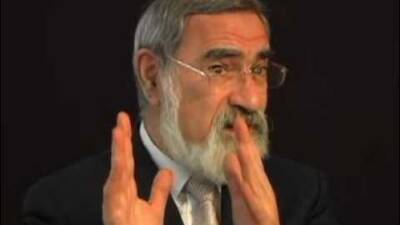
Rabbi Sacks on Combatting Antisemitism
JInsider (March 2010)
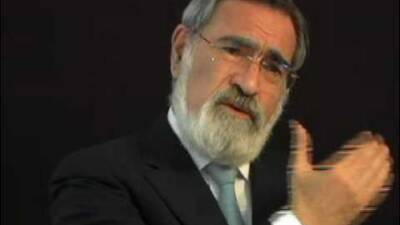
Rabbi Sacks on Material Loss
JInsider (March 2010)
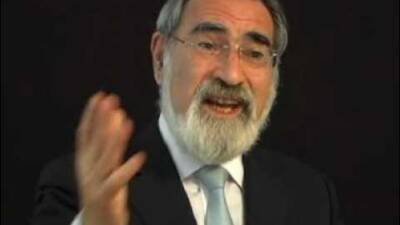
Rabbi Sacks on the Antidote to Materialism
JInsider (March 2010)
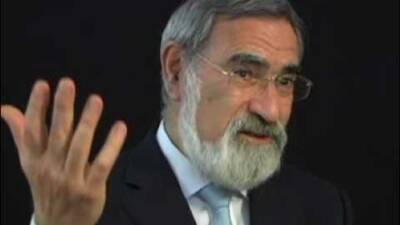
Rabbi Sacks on Parenting
JInsider (March 2010)
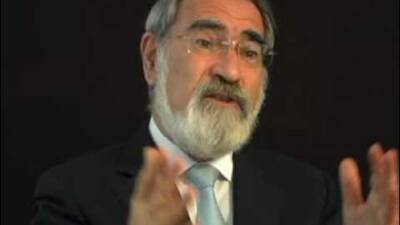
Rabbi Sacks on a Tzedakah Tale
JInsider (March 2010)
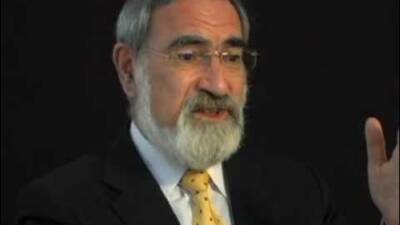
Rabbi Sacks on a Family Story
JInsider (March 2010)

On the Internet and Judaism
JInsider (March 2010)
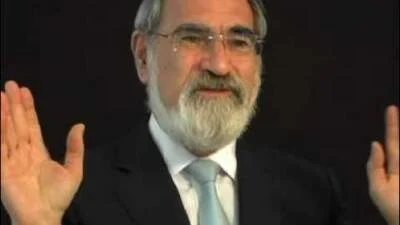
Rabbi Sacks on Plato's Ghost
JInsider (March 2010)
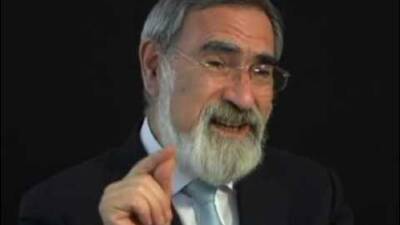
Rabbi Sacks on Optimism vs. Hope
JInsider (March 2010)
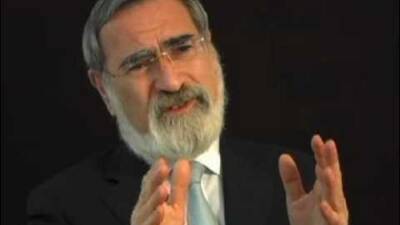
Rabbi Sacks on Victim Mentality
JInsider (March 2010)
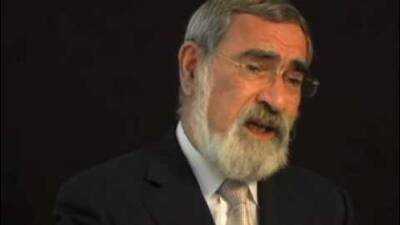
Rabbi Sacks on Jerusalem
JInsider (March 2010)
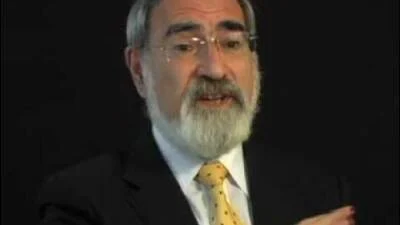
Rabbi Sacks on Advice for our Times
JInsider (March 2010)

Rabbi Sacks on Fundamentalism
JInsider (March 2010)
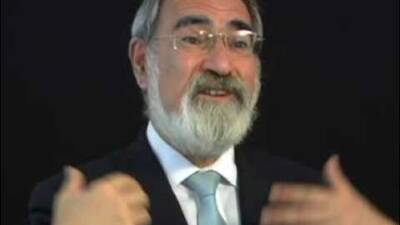
Rabbi Sacks on Time
JInsider (March 2010)
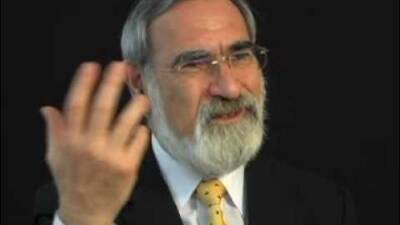
Rabbi Sacks on the Chosen People
JInsider (March 2010)
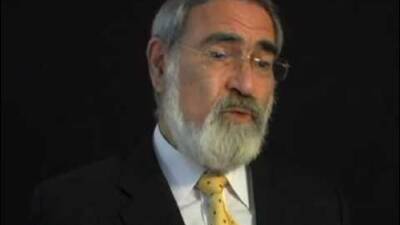
Rabbi Sacks on 21st Century Israel
JInsider (March 2010)
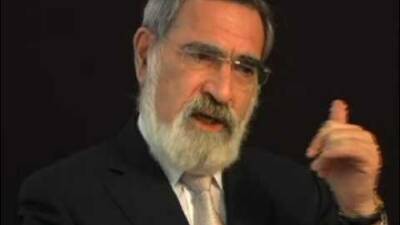
Rabbi Sacks on the Origins of Antisemitism
JInsider (March 2010)
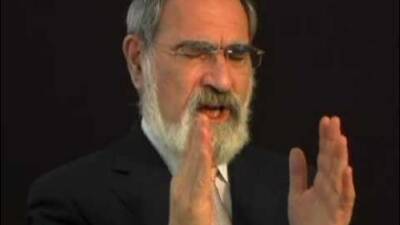
Rabbi Sacks on Understanding Jewish Exile
JInsider (March 2010)

Rabbi Sacks on Anger
JInsider (March 2010)
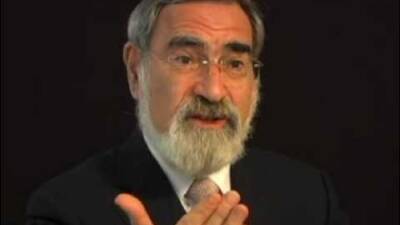
Rabbi Sacks on the Historical Evolution of Antisemitism
JInsider (March 2010)
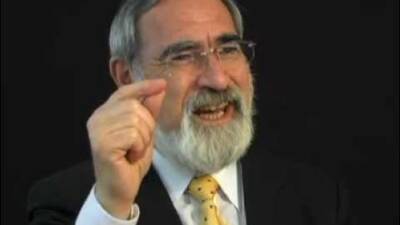
Rabbi Sacks on Interfaith Relations
JInsider (March 2010)
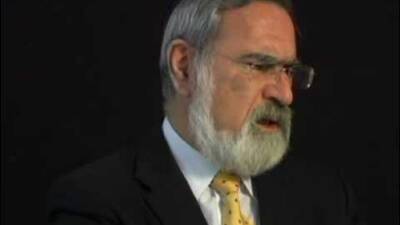
Rabbi Sacks on Coincidence and Providence
JInsider (March 2010)
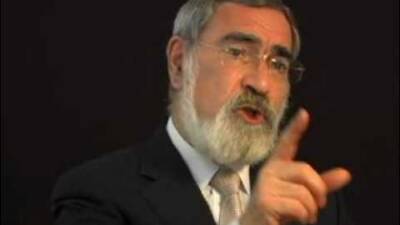
Rabbi Sacks on Free Will
JInsider (March 2010)
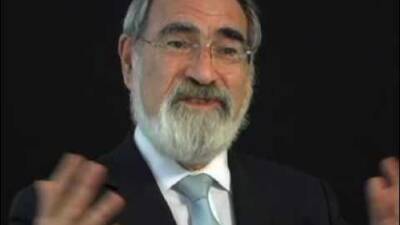
Rabbi Sacks on Family and Marriage
JInsider (March 2010)
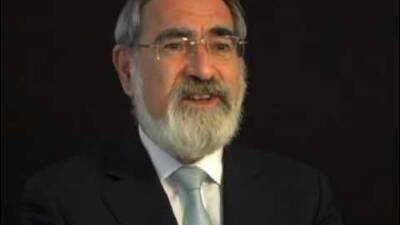
Rabbi Sacks on Tzedakah Defined
JInsider (March 2010)
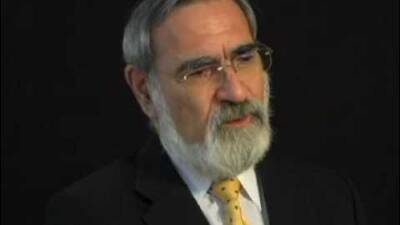
Rabbi Sacks on Daily Life
JInsider (March 2010)
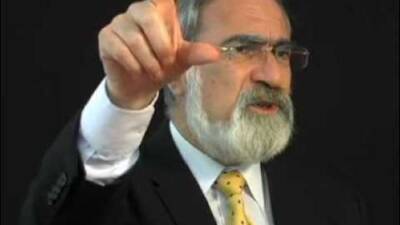
Rabbi Sacks on Being Jewish
JInsider (March 2010)

Rabbi Sacks on his Personal Rebbe, Rabbi Nachum Rabinovitch
JInsider (March 2010)
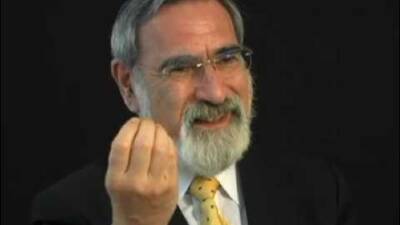
Rabbi Sacks on Connecting to God
JInsider (March 2010)
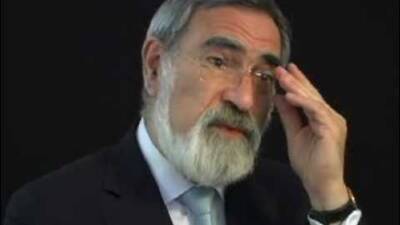
Rabbi Sacks on God and Evil
JInsider (March 2010)

Rabbi Sacks on Dialogue with Atheists
JInsider (March 2010)
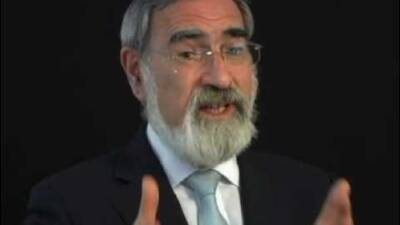
Rabbi Sacks on Doubt
Jinsider (March 2010)
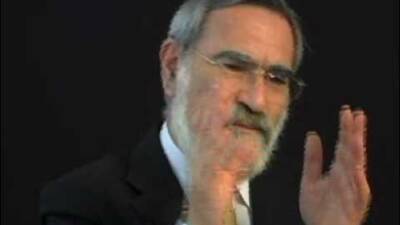
On Tikkun Olam
JInsider (March 2010)
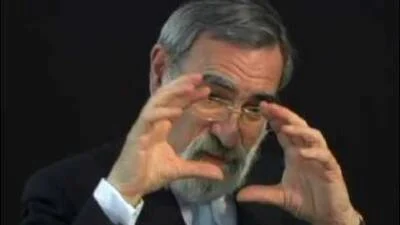
Rabbi Sacks on a Response to Atheism
JInsider (March 2010)
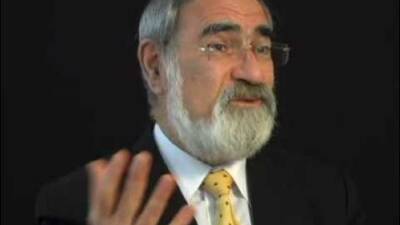
Rabbi Sacks on Finding Purpose
JInsider (March 2010)
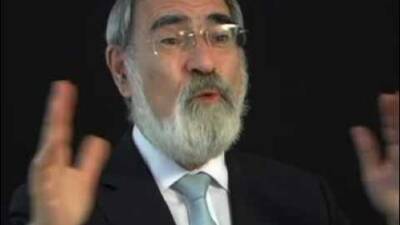
Rabbi Sacks on a Responsible Life - Example
JInsider (March 2010)
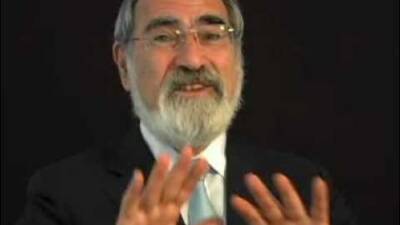
Rabbi Sacks on the Dignity of Difference - Part 2
JInsider (March 2010)
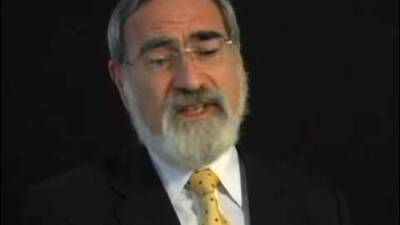
Rabbi Sacks on the Dignity of Difference - Part 1
JInsider (March 2010)
